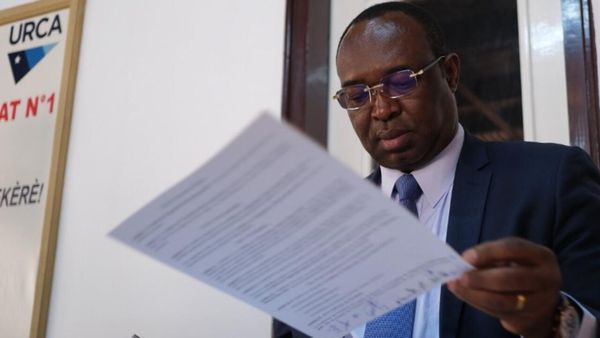
The family of a woman killed by an ex-partner who bombarded her with hundreds of messages and calls will ask a judge on Monday to force the French authorities to explain why they failed to protect her.
Sandra Pla had complained to police three times about Mickaël Falou’s threatening behaviour over a period of six months, but her application for a protection order was rejected.
After she sent a desperate plea for help to the public prosecutor in which she wrote “I fear the worst,” Falou was finally summoned by police and told he was being put under investigation.
Less than 36 hours after he was released and ordered not to approach Pla, Falou hid for more than four hours in a shed outside her apartment and attacked her as she returned from dropping their daughter at school, stabbing her 50 times.
At his trial in January, Falou was convicted of murder and jailed for 30 years.
Now Pla’s family want to know why police, social services and the family courts ignored the warning signs. Their lawyer, Elsa Crozatier, submitted a formal case accusing the state authorities of “serious failings” 18 months ago, but says there has been no answer. Crozatier will go to court in Paris on Monday to ask a judge to force them to respond.
“I am scandalised by the hypocritical attitude of the state. It claims its priority is combating violence against women but the authorities failed to protect Sandra when she asked for help several times,” Crozatier told the Guardian.
“It’s been four years and we’ve had no explanations of what happened and why. We’ve been told it wouldn’t happen today, but we’ve no idea what has changed.”
Between 3 January 2021 when Pla, 31, ended their relationship and 18 June 2021, Falou, 40, bombarded her with 317 text messages and telephoned her 67 times. His almost daily presence outside her home was recorded by the doorbell camera her parents installed, but police said Falou was on the public highway and could not be prosecuted. Finally, Pla’s mother, Annie, and stepfather, Gérard, moved from Spain into her small apartment in Bordeaux to protect their daughter, who was so scared her doctor signed her off work for 15 days.
In April 2021, police referred the case to social services, who recommended Falou be “made aware of the seriousness of his actions” and be obliged to undergo medical treatment. The following month, the Bordeaux family court granted Pla custody of the couple’s four-year-old daughter, limiting Falou to supervised access for two hours every fortnight.
On 1 July, less than two days after he was put under investigation for harassment and ordered not to go near Pla, he killed her.
“They didn’t call to inform Sandra he was being let go under legal conditions. They sent a letter that we found in her postbox after she died,” Crozatier said.
Last year, 136 women were killed by partners or ex-partners in France, a rise of more than 44% on 2023. In the last five years, the French state has faced several cases brought by victims’ families who accuse it of failing to act to prevent the killings. In June, the state was ordered to pay €27,000 (£23,000) to the family of Nathalie Debaillie, killed by her former partner in Lille in 2019. It is facing at least two other cases, not including Pla’s: the murder of Chahinez Daoud, 31, who was burned alive by her husband in 2021 and the killing of Patricia Gomit, 51, by her ex-partner in 2022.
Bernard Grelon, the state’s legal representative in the Pla case, said: “The state’s legal representative is reserving his comments for the court and I have no statement to make prior to the hearing.”
Pla’s mother said last year: “For my daughter it’s too late, but women are still being killed. I cannot sit back with my arms crossed and do nothing.”







